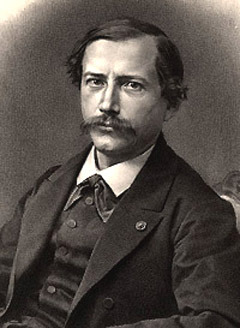Marcellin Berthelot

Pierre Eugène Marcellin Berthelot (25 October 1827 – 18 March 1907) was a French chemist and politician noted for the Thomsen-Berthelot principle of thermochemistry. He synthesized many organic compounds from inorganic substances and disproved the theory of vitalism[citation needed]. He is considered as one of the greatest chemists of all time.
He was born in Paris, France, the son of a doctor. After doing well at school in history and philosophy, he became a scientist.
The fundamental conception that underlay all Berthelot's chemical work was that all chemical phenomena depend on the action of physical forces which can be determined and measured. When he began his active career it was generally believed that, although some instances of the synthetic production of organic substances had been observed, on the whole organic chemistry remained an analytical science and could not become a constructive one, because the formation of the substances with which it deals required the intervention of vital activity in some shape. To this attitude he offered uncompromising opposition, and by the synthetic production of numerous hydrocarbons, natural fats, sugars and other bodies he proved that organic compounds can be formed by ordinary methods of chemical manipulation and obey the same principles as inorganic substances, thus exhibiting the "creative character in virtue of which chemistry actually realizes the abstract conceptions of its theories and classifications—a prerogative so far possessed neither by the natural nor by the historical sciences."
In 1863 he became a member of the Académie Nationale de Médecine; he was also awarded the Grand Cross of the Legion of Honour.
More: http://www.britannica.com/EBchecked/t...
http://www.nndb.com/people/892/000100...
http://science.howstuffworks.com/dict...
http://chemistry.about.com/od/famousc...
